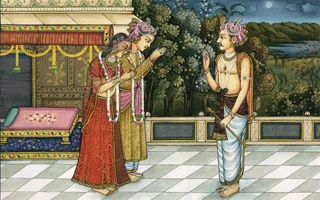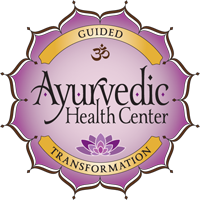Ayurvedic Health Center FAQ

There are so many benefits! Here are a handful…
- moving past your limitations
- digesting the foods you eat
- eliminating wastes from your body
- sleeping well
- getting a handle on anxiety & depression
- feeling better overall
- building a relationship with a practitioner
- empowering yourself to know what choices support you
- connecting with like-minded people
Ayurveda “sees” you as a whole person rather than the sum of your symptoms or disease. ie: Ayurveda understands that you are not “broken;” you have lost the connection to your deeper self and could use some direction and help to make your way back. Contact us to learn how we can help you.
The answer has four parts:
1. when you are ready to change the conversation that you are having with yourself/your body to something more positive, more productive, more constructive, more supportive—ie: change your relationship with your body
2. when you resonate with the toolbox that we have to offer:
- recommendations around foods and eating habits
- herbal formulas
- specialized massage and bodywork
- therapies for what ails ya
- cleanse & digestive reset protocols
- … and a host of allies including aromatherapy, color therapy, gem therapy, astrology, the ways our living and working spaces support us, breathing exercises, chanting, yoga and movement work, and practices aimed specifically at increasing our connection to Spirit.
3. when you’ve tried everything else—and you still need help
4. when you want/need additional support around what Western medicine provides (ie: nutritional support during cancer care, relief from pain when your symptoms are not “bad enough” to undergo orthopedic surgery)
You can expect an experience much like going to any other practitioner. Our office is comfortable and welcoming. We will guide you through the work and do all that we can to ensure that you have a successful experience.
During an intake your Ayurvedic Health Practitioner will take a detailed health history. She will also determine your Ayurvedic constitution. (The constitution is the consideration around which all recommendations are made, so it’s an important and integral piece of the process.)
Your Ayurvedic Health Practitioner will brainstorm possible recommendations for you to follow through with. She will create a treatment protocol for you. The two of you will collaborate on how it is easiest for you to implement the recommendations.
During 1-hour follow-up appointments we will fine-tune your self-care practices and may even shift some things around so that they better serve you. Remember that this is a co-creative process that unfolds over time.
Ohmygosh. All the time! We can do health and wellness consultations for couples. We can work with families. You could even come in with a support buddy—someone who is wrestling with the same issue you are. If you are working with physical issues, we can customize specific treatments from Ayurveda’s deep well of possibilities.
We want to get you on your way to feeling better as soon as possible. The more things you do that support your health and wellness—and the sooner you get started—the more you’ll improve and the better you’ll feel.
Contact us to explore the options and craft something useful for you and your health goals.
Ayurveda works best when we proactively tend to our health and wellness. This is not a model that is primarily set up around emergencies and triage, although it can handle those, too.
Continuing to come in for appointments serves a few functions:
1. a gentle reminder to continue doing your self-care practices {We all stray from time to time—for various reasons; it’s nice to have someone hold us accountable and remind us to re-engage.}
2. a way to review what you are currently doing to see if it is working well for you {For example: sometimes we need to take more of an herb, take less of an herb, or take the herb in a different way. Your practitioner is the container of that information in all of its variables. So, rather than dismiss a practice as something that is “not working for me,” you might talk about it with your practitioner and find a way to successfully modify it.}
3. a review process to ensure that you are, in fact, doing what we talked about during your appointment {Life is busy, we all have many things to take care of, and there are lots of distractions. Something may have been lost in translation—ie: you may have mis-understood a recommendation. It happens. Pretty frequently, actually. Let’s make sure you are doing the thing—in its intended way—to get you feeling better.}
4. an opportunity for a seasonal check-in or tune-up {Ayurveda works with the rhythms of nature and understands that things (including us) change over time. What works in summer may be aggravating in autumn or winter. Adjusting our routines and practices to flow with the cycles of the seasons is good preventative medicine.}
5. a teacher who can educate you around the finer points or deeper levels of Ayurvedic knowledge {The internet is a wonderful tool, but it is not the end-all/be-all. There is a lot of nuance to Ayurveda, and there is a great body of knowledge to this Science of Life that does not show up in an internet search or in publicly-available books. Your practitioner has been rigourously trained in Ayurvedic medicine; Google hasn’t. It is easy for people to misunderstand disctinctions between terms—and how they manifest. Your practitioner is a guide who can correctly decode information and gently correct your assumptions.}
This is a great question! The simple answer is, “No!”
Ayurveda, of course, comes out of the civilization that communicated in Sanskrit, and even though Sanskrit isn’t commonly spoken, it is still a viable language. All of the ancient texts about Ayurveda—and its related Vedic sciences—are written in Sanskrit, so students of Ayurveda are steeped in it, and practitioners find its terminology useful. It is sometimes helpful to use Sanskrit because it is such a poetic, lyrical, and musical language.
You, however, are not expected to know these words and terms. If we use a Sanskrit term with you, there will be a reason why we do so, and we’ll provide the English equivalent.


